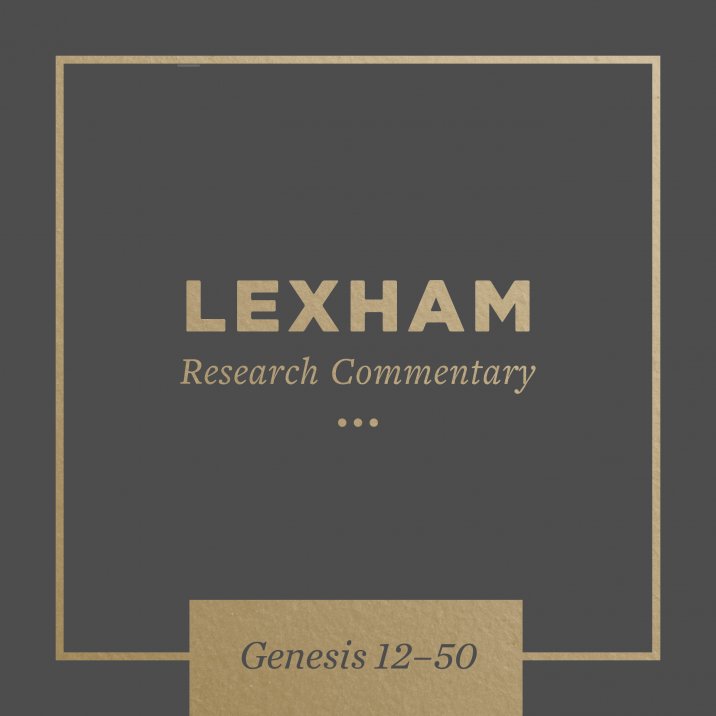Lexham Bible Guide: Genesis 12–50 is the largest Lexham Bible Guide yet. From God’s call on Abraham to Joseph’s death in Egypt, the volume addresses more than 200 exegetical, theological, and historical issues and offers 55 word studies, giving you insight into the interpretation of these foundational chapters. For each issue, we examine the viewpoints of top scholars and biblical interpreters, allowing you to gain a quick understanding without having to read through several commentaries.
In Lexham Bible Guide: Genesis 12–50, we engage with more than 25 Genesis commentaries as well as relevant dictionaries and journal articles, providing you with a breadth of opinions on the more than 200 issues discussed in the volume. Our summaries of these commentaries’ positions save you countless hours of reading and research and give you short excerpts of the viewpoints articulated in biblical scholarship.
For example, after Joseph rose to power in Egypt, he had two sons with his Egyptian wife (see Gen 41:50–52). Scholars disagree on the relevance of Joseph’s names for his sons. Here is an excerpt from the volume:
Manasseh and Ephraim
During the seven years of plenty, Joseph has two sons (Gen 41:50). The giving of names in the Bible and in the ancient Near East carried great significance. Here, the names Joseph gives his sons speak directly to his past struggles.
Joseph names his first son Manasseh (menashsheh), which means something like “one who causes to forget.” Joseph explains this name by saying, “God has made me forget (nashshani) all my trouble and all my father’s house” (Gen 41:51). He names his second son Ephraim, explaining that “God has made me fruitful in the land of my affliction” (Gen 41:52). Ephraim (ephrayim) is derived from parah, meaning “to be fruitful.”
Both names highlight the hardship of Joseph’s life (“my trouble” and “my affliction”) and God’s role in the success he is now enjoying (“God has made me forget” and “God has made me fruitful”). However, scholars disagree on how to understand the additional note about forgetting “all my father’s house.” Some view it negatively and argue that Joseph should have been looking to reconcile with his father. Others view this as Joseph’s desire to forget his past sufferings
- McKeown argues that Joseph’s statement about forgetting “all the house of my father” indicates that he does not plan to seek out his family. He asserts that Joseph has a new family in Egypt and does not show interest in either reconciliation or revenge.
- The Two Horizons Old Testament Commentary: Genesis, “Joseph Takes Charge (Gen 41:39–57)”
- Ross believes that the names Joseph gives his sons show that he has not abandoned his heritage. He demonstrates how Manasseh’s name forms a description of God’s activity that changed Joseph’s fortune, while Ephraim’s name reflects a new prosperity.
- Creation and Blessing: A Guide to the Study and Exposition of Genesis, “Genesis 41:46–57”
- Cornerstone Biblical Commentary vol. 1: Genesis, Exodus, “Genesis 41:41–57”
- Sarna believes the phrase “all my trouble and all my father’s house” should be translated as “my suffering in my parental home.” He argues that Joseph is not forgetting his father’s home but is merely not allowing the troubles of his youth to intrude on his future.
- The JPS Torah Commentary, Genesis, “Joseph’s Two Sons (Gen 41:50–52)”
- Waltke notes that Joseph is “strangely indifferent” toward his father. He points out, though, that the narrator does not condemn Joseph for this. Waltke also argues that Joseph’s giving his sons Hebrew names instead of Egyptian names indicates that he has not forgotten his father’s house.
- Genesis: A Commentary, “Joseph’s Sons”
- Westermann understands the phrase “and all my father’s house” to mean “I am far from my father’s house.” He asserts that the names Joseph chooses reveal his understanding that God has been with him (Gen 39:2–6, 21–23).
- Continental Commentary Series: Genesis 37–50, “Genesis 41:50–52”
Lexham Bible Guide: Genesis 12–50 is available individually or as part of the Lexham Bible Guides: Genesis Collection. The collection is on sale for a limited time—only until February 14, when Lexham Bible Guide: Genesis 12–50 ships. Order now to get the lowest price on this collection, which will serve as your guide to Genesis for many years to come.





